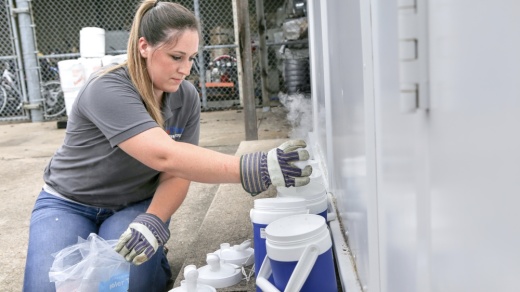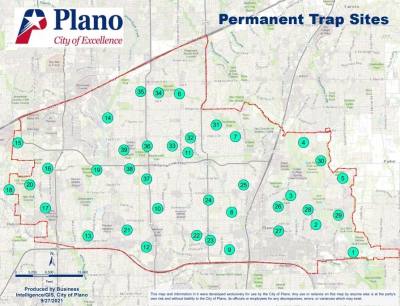According to the Centers for Disease Control and Prevention, the virus is the leading cause of mosquito-borne disease in the U.S., and it is often spread through mosquito bites during summer and fall months. The CDC states 1 in 5 people infected by the virus develop a fever and minor symptoms, and 1 in 150 infected individuals can develop a serious or fatal illness.
Carolyn Russell, Plano’s senior environmental quality specialist, said the hot and humid climate of Texas is well-suited for mosquitoes to live in and breed. She said the city places mosquito traps in nearly 40 different locations around the city in public areas where mosquitoes may be prevalent. The city then sends caught mosquitoes to a lab to test for any viruses. If a mosquito tests positive for West Nile or any other virus, officials send out trucks and spray around the area to mitigate the potential spread.
Russell said positive West Nile tests vary year to year. She said some years can see as little as one positive test throughout a mosquito season while other years can have up to 20.
Russel said the city takes multiple other steps to prevent mosquitoes from spreading throughout Plano. City officials will eliminate breeding spots by applying pesticides to standing bodies of water and spraying certain areas. The city will also introduce fish into certain habitats that will consume mosquito larvae to help reduce population growth, Plano’s website states.
While her department takes the issue seriously, Russell said residents should not be overly concerned about the West Nile virus.
“It's definitely just an awareness to understand that it exists and take personal protection,” she said. “Try to do weekly surveys of your property and make sure there isn’t any unnecessary standing water.”
Russell said residents should check plants, potters and get rid of any built-up water around their yards as those are areas where mosquitoes will be most attracted. She said remembering the “Four Ds” are also important to defending against West Nile virus.
According to the Texas Department of State Health Services, the “Four Ds” includes staying indoors during dusk and dawn, dressing in long sleeves and pants when outside for extra protection, using mosquito repellent with the ingredient called DEET and draining standing water near homes.
City officials said residents can call the Plano Environmental Health and Sustainability Department at 972-941-7143 or visit the city’s website with any concerns regarding mosquitoes in Plano.






